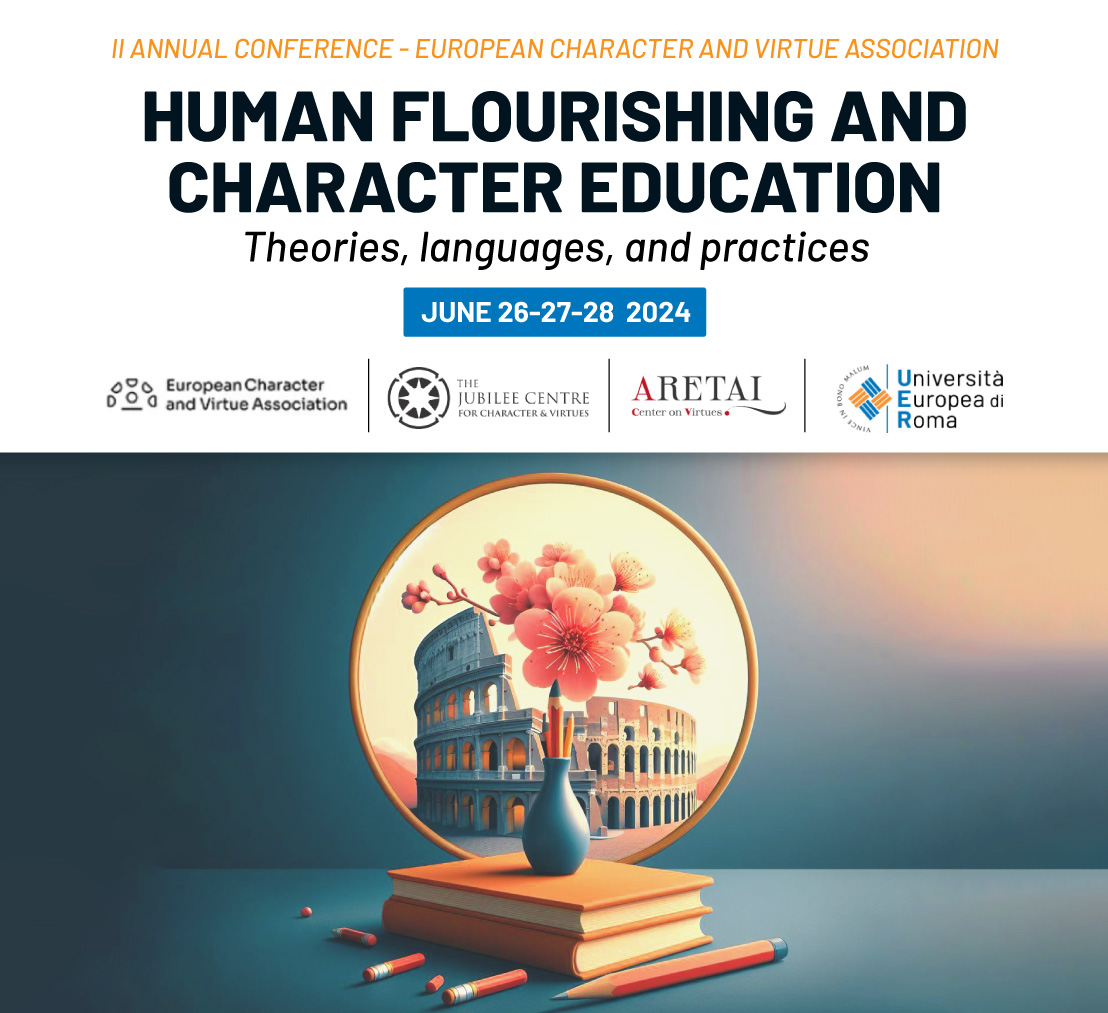

Description
The renewal of character education both in Europe and worldwide has been spearheaded by Aristotelian virtue ethics. The language of virtue has enabled theorists and practitioners alike to address certain issues which were not easily formulable in other more abstract and formal moral and educational discourses and has reestablished flourishing as the central aim of education. It has also successfully avoided the opposite extremes of instrumentalism and mere technicality and integrated the learning of skills and values into broader programmes of habituation into the different typologies of virtue and/or of cultivation of phronesis. But work remains to be done at different levels. Indeed, the vocabulary of virtue can in certain contexts still be associated to a content wholly different from the actual aims of character education, having been used for other purposes by ideologies and regimes during the last two centuries. And on the contrary, certain practitioners, institutions and programmes might find no use in the vocabulary – or may not even be aware of Aristotelian virtue ethics – and still invoke its key concepts under different names and follow its logic. Some would indeed argue that character education is about being good and doing the good, and not about having a fully worked out concept of the good.
The aim of this conference is to bring together philosophers, educators, pedagogists, psychologists and professionals to discuss the connection between theories, languages, and practices of character education. The conference will be structured around plenary sessions and parallel sessions with the contributed papers selected by double blind review. The contributed papers should last 30 minutes (presentation + discussion)
Date and venue
June 26-28, 2024 – European University of Rome – Via degli Aldobrandeschi 190, Rome (Italy)
Language of the Conference: English
Keynote speakers
- Athanassoulis Nafsika (Athens College)
- de Ruyter Doret J. (University of Humanistic Studies)
- Fowers Blaine J. (University of Miami)
- Kristjánsson Kristján (The Jubilee Centre for Character and Virtues, University of Birmingham, UK)
- McLoughlin Shane (The Jubilee Centre for Character and Virtues, University of Birmingham)
Call for papers
Abstracts of approximately 500 words (references included), prepared for blind refereeing, should be sent as email attachments to ecva2024@unier.it. Symposium proposals of 3 presentations can also be submitted, by indicating the general title, the symposium main proponent, a short description, together with the three abstracts.
Here is a (by no means exhaustive) list of potential topics:
- Is character education independent from an Aristotelian vocabulary?
- Is it easily transposable to cultures and places not familiar with classical European thought?
- How should we implement character education in schools, professions, businesses, and civic institutions?
- Are there possible convergences with other educational movements not using the character educational vocabulary?
- Can we describe any existing educational practices or programmes in terms of moral virtue and character education? Or are current educational programmes only translatable in terms of performance virtues?
- Should we adjust our current theories of character education to existing educational practices and programmes?
- Are there concrete examples of a successful introduction of the theories and languages of character education into a milieu initially hostile to them?
Submissions and Deadlines
Submission deadline: February 20, 2024, 11:59 pm CET.
Acceptance: by March 31, 2024
The paper proposal can be submitted just in English and must include the following:
- Abstract (500 words), with 4-5 keywords.
- Short abstract (100 words)
- Title of the paper
- Author(s), affiliation, and e-mail address of the corresponding author
Accepted abstracts will be available online before the conference.
Registration & Fee
You can register to attend the conference without submitting a paper proposal. Presenters of all accepted papers will be expected to register to attend the conference.
Registration fee of € 210 for each individual attendee, includes lunch and dinner Wednesday and Thursday, coffee breaks, material.
In order to formalise your registration and payment you must:
- access the payment gateway and follow the instructions
- deadline of payment May 24th, 2024
Practical information
European University of Rome – Via degli Aldobrandeschi 190, Rome (Italy)
Travel Info
Rome has 2 airports (Leonardo Da Vinci-Fiumicino Airport, IATA code: FCO; Aeroporto di Roma-Ciampino, IATA code: CIA) with direct connections with International airports. From both airports, bus and train services connect to the city center and Roma Termini station.
Train
From Roma Termini you can easily reach Roma Aurelia train station (line Civitavecchia-Roma Termini). Be careful NOT to get confused with Valle Aurelia Station (on another line).
The conference venue is 5-minute walk from Roma Aurelia train station.
For more information about train times check Trenitalia’s website or Pdf (from 10/12/2023 to 08/06/2024) – to be updated when available
Bus
Bus n° 892 from Via Baldo degli Ubaldi (Metro A Baldo degli Ubaldi) direction Via Aldobrandeschi (last stop).
Bus n° 247 from Via Cipro (last stop Metro A) direction Roma Aurelia station (last stop). Get off at Aurelia station, go through the underpass and exit on the side of Via della Stazione Aurelia.
For more information about bus timetables check ATAC’s website.
Accomodation
Nearby the conference venue, or close to the main train stations on the line Civitavecchia-Roma Termini, you can find a number of hotels and B&Bs. Please note that in that period of the year there will be a lot of tourists in Rome, so please make your hotel reservation in due time.
Roma Aurelia station: Università Europea di Roma
Nearby Hotels or B&B
- Hotel The Brand
- HU Roma Camping in town
- Aurelia Garden Gold B&B
- Raganelli Hotel
- Smooth Hotel
- Green Park Hotel Pamphili
- Ergife Hotel
- Ibis Style Rome Aurelia
- Scheppers Hotel
- Belstay Roma Aurelia
- Midas Palace Hotel
Nearby Stations
Program committee
Scientific committee
- Michel Croce (University of Genoa)
- Mario De Caro (Rome 3 University – Tufts University)
- Veronica Fernandez (Francisco de Vitoria University, Madrid)
- Tom Harrrison (University of Birmingham)
- Claudia Navarini (European University of Rome)
- Maria Silvia Vaccarezza (University of Genoa)
Organizational committee
- Cristina Caimi
- Pierre- Thomas Eckert
- Chiara Palazzolo
- Martina Piantoni
- Elena Ricci
- Antonio Scoppettuolo

